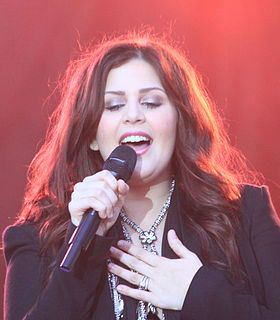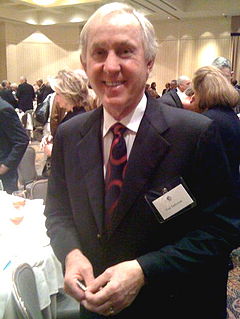A Quote by Yanni
It has never been necessary for me to learn how to read music.
Related Quotes
The people wanted to believe that the Negroes couldn't learn to read music but had a natural talent for it. So we never played with no music. I'd get all the latest Broadway music from the publisher, and we'd learn the tunes and rehearse them until we had them all down pat- never made no mistakes. All the high-tone, big-time folks would say, isn't it wonderful how these untrained, primitive musicians can pick up all the latest songs instantly without being able to read music?
It's really hard to teach me anything. I can't read music. I never learned how to read music. I read books about things and try to learn - I don't like to learn from anybody. Later on I would, once I'd get the hang of things. Like I ride horses, I'm good at that, Western riding. I learned all about it reading and studying. I'm always learning about horses, I like that.
When you learn to read and write, it opens up opportunities for you to learn so many other things. When you learn to read, you can then read to learn. And it's the same thing with coding. If you learn to code, you can code to learn. Now some of the things you can learn are sort of obvious. You learn more about how computers work.
After I found out that I was playing music and that I'd have to learn how to read and write music, I started doing that about two years later. Finally, I said, "Oh, that means what I really want to do is to be a composer." But when I was coming up in Texas, there was segregation. There was no schools to go to. I taught myself how to read and how to start writing.
Even my colleagues don't read classic criticism. And my feeling is that if you don't do that then you're not really practicing your craft. That's how you learn how to do it. You don't learn how to write about jazz just from listening to jazz. You learn how to write by reading the great writers and how they worked, the great music critics.
I didn't want to teach my kid how to read, so I used to read to him at night and close the book at the most interesting part. He said, “What happened then, daddy?” I said, “If you learn to read, you can find out. I'm too tired to read. I'll read to you tomorrow.” So, he had a need to want to learn how to read. Don't teach children how to read. Don't teach them mathematics. Give them a reason to want it. In school, they're working ass-backwards.
You learn from music, from watching great athletes at work - how disciplined they are, how they move. You learn these things by watching a shortstop at work, how he concentrates on one thing at a time. You learn from classic music, from the blues and jazz, from bluegrass. From all this, you learn how to sustain a great line without bringing in unnecessary words.
By instructing students how to learn, unlearn and relearn, a powerful new dimension can be added to education. Psychologist Herbert Gerjuoy of the Human Resources Research Organization phrases it simply: 'The new education must teach the individual how to classify and reclassify information, how to evaluate its veracity, how to change categories when necessary, how to move from the concrete to the abstract and back, how to look at problems from a new direction — how to teach himself. Tomorrow's illiterate will not be the man who can't read; he will be the man who has not learned how to learn.'
For me music is pretty personal. I generally listen to it alone, and I've never been a lover of concerts. So I don't think I really bond with other people over music. That's not unique to music for me, either. I feel that way about film, television, art, everything. I read a book alone, so why wouldn't I listen to music alone?
My mother wanted me to learn how to read music. She'd given fiddles to my two older brothers, but they'd rebelled. I came along and my father said, "Oh, let Peter enjoy himself." What she did was leave musical instruments all around the house. Whistles, marimbas, squeeze boxes, a piano and organ. By age six or seven, I could bang out a simple tune on almost anything. I developed a good ear, so I didn't learn to read music until I taught myself at age eighteen, 'cause I was hearing so many good songs I couldn't possibly remember them all.
I studied piano from the age of three. My grandmother taught piano. I stayed at her house during the day while my parents worked. I obviously wanted to learn to play. And so she asked if she could teach me, and my mother said don't you think she's too young. My grandmother apparently said no. So I could read music before I could read, and I really don't remember learning to read music. So for me it's like a native language. When I look at a sheet of music, it just makes sense.




































